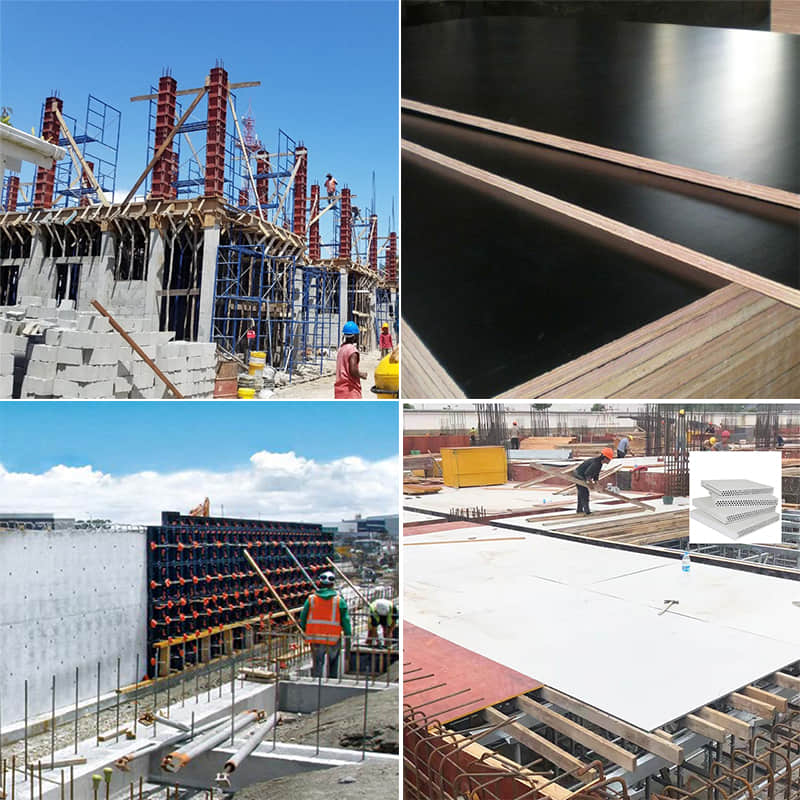Choosing The Right Concrete Formwork Materials: Key Considerations
Dec 23, 2023
Concrete formwork is of great importance because it keeps the quality, shape, and integrity of a concrete structure intact and intact. The right selection of formwork material will ensure success in a project, causing some changes to the cost, durability, and ease of use of the forms. When selecting formwork materials, one should consider several points for their effective performance.
Key Considerations
Strength and Durability
The functional capability of the formwork must include all the support required by the wet concrete and applicable additional loads present during construction. Therefore, the material should provide enough resistance to pressure to maintain its shape and functionality, without the risk of bending or breaking under stress. Materials that are used include timber, steel, aluminum, and plywood, with varying strengths offered by each. Steel and aluminum may be particularly recommended for large-scale and thus generally demanding works, as such materials have high strength and reusability.
Reusability
The extent of reusability of formwork material will thus make a lot of difference to a project's economics. Steel and aluminum can be employed over a long period due to their reusability. Timber is relatively cheaper to begin with, but its lifetime use may be fairly limited; thus, it may require replacement after very few uses. Hence, while selecting the material for a project lasting longer, the choice must be made on the basis of balance between material cost and reusability for projects with longer durations or repeated concrete work.
Ease of Assembly and Dismantling
Time is a critical factor in construction projects, and formwork materials that are easy to assemble and dismantle can save significant labor costs and reduce project timelines. Prefabricated or modular formwork systems, typically made from materials like steel or plastic, offer faster setup times compared to traditional timber systems. Lightweight materials such as aluminum also provide easier handling and faster installation.
Surface Finish Quality
The type of formwork material directly impacts the surface finish of the concrete. If a smooth and high-quality finish is required, materials like plywood with a smooth surface or steel formwork are ideal. On the other hand, rougher surface finishes may be acceptable for certain types of construction, where timber or other textured materials might be used. The selection should align with the aesthetic and structural requirements of the project.
Cost Considerations
Budget constraints often play a large role in selecting formwork materials. While steel and aluminum may have higher upfront costs, their long-term benefits, such as durability and reusability, can offset these costs in large-scale or recurring projects. Timber and plywood may be more suitable for smaller, one-time projects with limited budgets. It is essential to weigh the initial cost against the lifecycle value to make the best decision.
Environmental Impact
Sustainability is becoming an important consideration in construction. Reusable materials like steel and aluminum can reduce waste, while certain types of timber can be sourced from sustainably managed forests. The environmental impact of the material, including its ability to be recycled or reused, should be taken into account for projects that aim to minimize their ecological footprint.
Project-Specific Requirements
The specific requirements of a project, such as the complexity of the structure, weather conditions, and load-bearing capacity, will dictate the type of formwork material to use. For example, projects in harsh climates may require formwork materials resistant to moisture or corrosion, while intricate architectural designs may call for flexible or easily adjustable formwork systems.
Types Of formwork
Wood Plywood Formwork
Advantages: Lightweight, easy to cut and shape, and affordable for one-time use.
Limitations: Prone to warping, limited reuse potential, and not ideal for complex shapes.
Best For: Simple, smaller projects or situations where the formwork is unlikely to be reused.
Steel Formwork
Advantages: High strength, great for large projects, highly reusable. Steel fits for complex shapes and high loads.
Limitations: High initial cost, required expert labor, can rust if not treated properly.
Best For: Long-term or high-rise, and repeat use and high strength applications.
Aluminum formwork
Advantages: It is lightweight compared to steel; of high reusability, not corrodible. Particularly suited for quick installation and most commonly used for repetitive layouts.
Disadvantages: Generally more costly compared to other materials, carelessly handled, however, aluminum formwork could easily be damaged.
For: High-rise buildings or projects requiring rapid, repeated installations.
Plastic Formwork
Advantages: These systems are lightweight, reusable, resistant to moisture and chemicals, and environmentally friendlier than concrete steel form te.
Limitations: Expensive in the initial phase, but the additional cost could be justified because of the reusability and permit in frequent usage.
Ideal For: Lightweight, easy-to-assemble, and moisture-resistant formwork for construction. Especially useful for frequent use or under extreme weather conditions.
In conclusion
Choosing the right formwork material is critical to a successful construction project. Each material has its advantages and limitations, and understanding their properties and limitations can help builders and contractors choose the most appropriate formwork for their specific needs.
FAQ
What Are The 4 Requirement Of Formwork?
Easy Removal
Less Leakages
Strength
Smooth Surface
Is Formwork The Same As Scaffolding?
Scaffolding is used to provide access to the structure, while forms are used to hold the wet concrete in place until it cures.
What Is The Difference Between Formwork And Shoring?
"Formwork" refers to the mold in which concrete is poured; "support" refers to the support used to support all or part of the structure of the formwork.
Relevant Information
Formwork Engineering: A Beginner's Guide --- LNTEDUTECH
Think Formwork-Reduce Costs --- STRUCTURE
Code Of Practice Formwork --- SAFEWORK NSW
